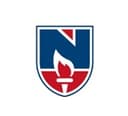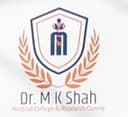Bachelor of Science (BSc) in Cath Lab Technology
OR
Prepared by Docthub Courses Team ∣
Last updated on 31 Jul 2024
Overview
B.Sc. in Cath Lab Technology is a 3-year undergraduate program that focuses on the study of the cardiac catheterization lab, which is used to diagnose and treat heart-related disorders. It is a specialized course designed for students who are interested in pursuing a career in the field of cardiology.
The course aims at providing students with an in-depth understanding of the functioning of the cardiac catheterization lab, the use of advanced medical equipment and techniques, and the diagnosis and treatment of heart-related disorders.

Table of Content
Highlights
| Details | Bachelor of Science (B.Sc.) in Cath Lab Technology |
| Level | Bachelor’s degree |
| Duration | 3 Years |
| Exam Type | Semester-wise |
| Course Fees | INR 50,000-5 Lakhs per year |
| Min. Qualification Requirement | 10+2 in the science stream with physics, chemistry, and biology. |
| Average Salary | INR 6-12 Lakhs per year |
| Selection Process | Entrance Exam/Merit-based/NEET |
| Min. Aggregate Score | 50% or more in 10+2 in science stream |
Full Form
The full form of B.Sc. in Cath Lab Technology is Bachelor of Science in Cath Lab Technology.
Eligibility:
Students who have completed their 10+2 with science stream (Physics, Chemistry, Biology) from a recognized board are eligible to apply for this course. The minimum aggregate marks required may vary from college to college.
Fees
The average fees for the Bachelor of Science in Cath lab technology in India range from INR 50,000 - 2,00,000 per annum. B.Sc Cath lab technology course fees depends on the college or university.
Who Should Do This Course?
Students who are passionate about the study of the cardiovascular system, its diseases, and the various medical procedures used to diagnose and treat them, and who wish to pursue a career in the field of catheterization laboratory technology, should opt for this course.
Why Study This Course?
Studying B.Sc. in Cath Lab Technology provides students with an opportunity to gain knowledge and skills required to assist cardiologists in performing cardiac procedures. It also opens up various career opportunities in the field of catheterization laboratory technology.
Admission Process
The admission process for the B.Sc. in Cath Lab Technology course may vary from college to college. Some colleges offer admission based on merit, while others conduct entrance exams followed by counseling rounds.
Entrance Exam
There are various entrance exams conducted by different colleges and universities for admission to the B.Sc. in Cath Lab Technology course. Some of the popular entrance exams include NEET, AIIMS, JIPMER, etc.
Syllabus
The syllabus for the B.Sc. in Cath Lab Technology course includes topics such as
- Anatomy and Physiology
- Cardiac Catheterization Techniques
- Cardiac Imaging Techniques
- Cardiac Pharmacology
- Radiologic Technology
- Cardiovascular Medicine
- Cardiac Emergencies and Interventions
Top Private Colleges
Some of the top private Bachelor of Science in Cath lab technology colleges includes:
- Manipal College of Health Professions, Bangalore
- Amrita Vishwa Vidyapeetham, Kochi
- KIMS Institute of Medical Sciences, Manipal
- SIMS University, Jaipur
- Bharati Vidyapeeth University, Pune
Top Govt Colleges
Some of the top government c Bachelor of Science in Cath lab technology colleges includes:
- All India Institute of Medical Sciences (AIIMS), Delhi
- Christian Medical College, Vellore
- Jawaharlal Institute of Postgraduate Medical Education and Research (JIPMER), Puducherry
- Sri Venkateswara Institute of Medical Sciences (SVIMS), Tirupati
Scope
After completing B.Sc. in Cath Lab Technology, students can work as Cath Lab Technologists, Cardiac Technologists, Cardiovascular Technologists, etc. They can also pursue higher education in the field of cardiology.
Further Study Options
Studying B.Sc. in Cath Lab Technology provides students with an opportunity to gain knowledge and skills required to assist cardiologists in performing cardiac procedures. It also opens up various career opportunities in the field of catheterization laboratory technology.
Career Opportunities After This Course
After completing B.Sc. in Cath Lab Technology, students can work as Cath Lab Technician, Cardiac Technologists, Cardiovascular Technologists, etc. They can work in hospitals, clinics, diagnostic centers, research labs, etc.
Salary
The average salary for Cath lab technician ranges from INR 6-12 LPA depending on their skills and experience.
Explore colleges for this course
Quick Go Links

Explore this course by location..
Related Job Roles
Related Job Vacancies
View All 237 Jobs

FAQS
What is BSc Cath lab technology?
BSc Cath lab technology (BSCLT) is a specialized undergraduate program that focuses on the study of cardiovascular and catheterization laboratory technology.
The program is designed to provide students with the skills and knowledge required to assist doctors in performing diagnostic and therapeutic procedures on patients with heart and vascular conditions.
Which colleges offer BSc in Cath lab technology in India?
Some of the top Bachelor of Science in Cath lab technology colleges include:
- Manipal University, Manipal
- Amity University, Noida
- Jain University, Bangalore
- SRM Institute of Science and Technology, Chennai
- Sikkim Manipal University, Gangtok
How long is the duration of a BSCLT program?
The duration of a BSCLT program is typically three years. Some colleges may offer a four-year program that includes a one-year internship or clinical training.
What subjects are covered in the curriculum of a BSCLT program?
The curriculum of a BSCLT program typically includes a combination of theory and practical courses. Such as:
- Anatomy and Physiology
- Cardiac Catheterization Techniques
- Cardiac Imaging Techniques
- Cardiac Pharmacology
- Radiologic Technology
- Cardiovascular Medicine
- Cardiac Emergencies and Interventions
Who is eligible for admission into a BSCLT program?
To be eligible for admission into a BSCLT program, candidates must have completed their 10+2 education from a recognized board with a minimum aggregate score of 50% in science subjects (Physics, Chemistry, and Biology).
Some colleges may also require candidates to appear for an entrance exam or interview as part of the admission process. It is advisable to check the specific eligibility criteria of the college before applying.
Related Course titles

Qualifications
12th Science PCB
Related Specialty
Cath Lab Technology
Cath Lab Nursing







